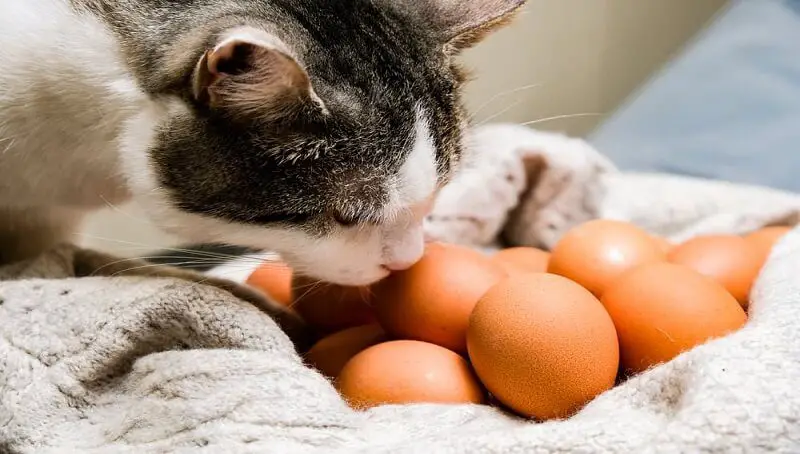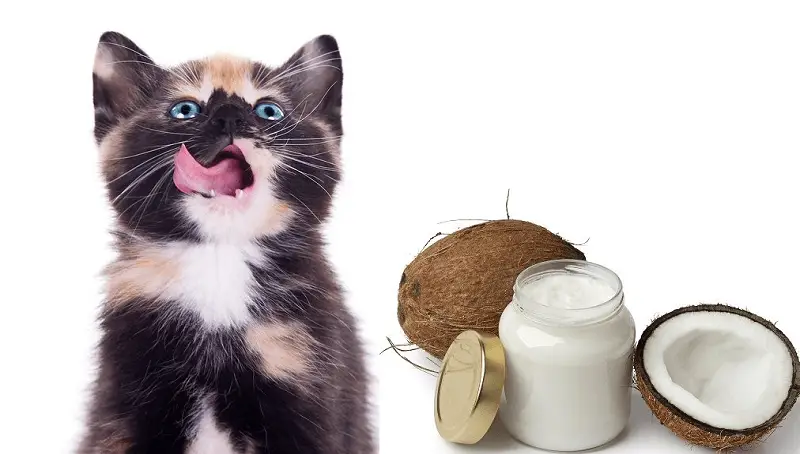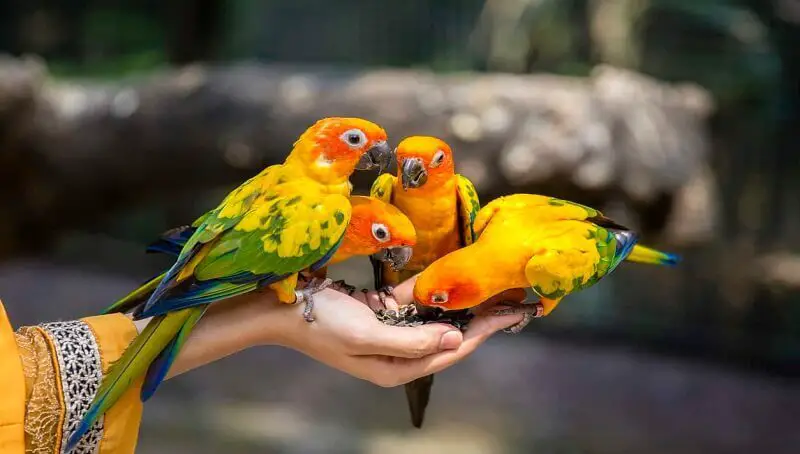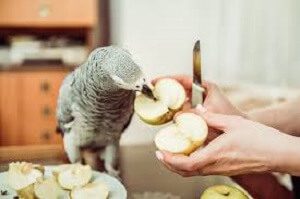
Can Cats Eat Eggs?
January 14, 2023
Is Coconut Oil Safe for Cats?
January 16, 2023
Birds are very social animals that feed in the wild in flocks of several hundred to several thousand. Pet birds like to share their meal time with their companions, whether they are other birds or human companions. The habit of feeding with their feathered companions is a great way to socialize for them. However, there are some foods that we humans love but should never be offered to pet birds because of potential toxicity. Among the most common toxic foods for birds are those listed below.
Toxic food for birds
-
Avocado
The leaves of the avocado plant contain persin. This is a fatty acid-like compound that acts as a fungicide in the plant. When ingested by a bird, this compound can cause heart damage, respiratory difficulties, weakness, and even sudden death.
Although certain avocado varieties are safely eaten by some bird species, it is very difficult to know what types of avocados will affect a particular species of birds. It is unclear how much avocado a bird should ingest to be affected.
Given the potential consequences, it is best to avoid feeding birds with avocados and foods that contain avocados, such as guacamole. Better give your birds a carrot stick, a slice of pepper, or other vegetables.
-
Caffeine
You might also like my articles about:
- Tips on how to hang apples for birds
- What do baby birds drink or eat
- Are essential oils safe for my pet bird
We all love caffeine products like coffee, tea, and soft drinks for their ability to stimulate and wake us up.
It’s tempting to want to share a sip of these magical drinks with your bird companions. But even a sip or two of these drinks can be toxic to your friend with feathers. Caffeine can increase heart rate, lead to arrhythmias and hyperactivity, and even induce a heart attack in birds.
So, skip the caffeine products and offer your birds water or fruit juice occasionally.
-
Chocolate
Birds find it hard to resist chocolate or foods that contain chocolate. However, even in very small amounts, they can be toxic to birds.
Chocolate contains both theobromine and caffeine, which can cause vomiting and diarrhea, and increased heart rate. It can also cause tremors and convulsions, hyperactivity, and even death in birds.
Next time you’re tempted to share chocolate with your friend instead, give it a few pieces of sweet fruit, such as mango, melon, or grapes.
-
Salt
Just as too much salt is not good for us humans, it is not good for our birds either. Even in very small amounts, salt is potentially toxic to a small bird.
To get an idea, a single salty piece of bagel or chip can spoil the electrolyte and fluid balance in a bird’s small body, leading to excessive thirst, dehydration, kidney failure, and death.
Give the bird the opportunity to taste only unsalted pretzels or a low-salt biscuit.
-
Food high in fat
Human consumption of high-fat foods such as butter, oils, fatty meats, and nuts can lead to the accumulation of cholesterol deposits in the arteries, known as atherosclerosis, predisposing us to heart disease and stroke. Eating these foods can lead to obesity.
The same process occurs in birds. And certain bird species, such as the Amazonian parrots and the Quaker, are prone to the development of high levels of cholesterol, triglycerides, and coronary artery disease. Therefore, it is recommended that both humans and birds limit their consumption of high-fat foods.
Birds can taste 1-2 nuts a week. But they should not be given large amounts of these fat-containing foods, especially if they are small compared to the size of the portion.
Birds love walnuts but an unsalted almond or a walnut a day is enough for a medium-sized parrot like an African gray parrot.
Larger birds that eat more fat in the wild, such as those in the Ara family, can eat a few nuts a day. Smaller ones, such as nymphs and pears, should not consume more than a few pieces of an almond daily.
-
Fruit seeds and apple seeds
 Most fruits are safe and generally healthy for birds to eat in small amounts.
Most fruits are safe and generally healthy for birds to eat in small amounts.
However, certain fruits containing seeds, such as apples and pears, as well as cherries, apricots, peaches, nectarines, and plums should not be offered to birds without removing the seeds.
These seeds contain small amounts of cyanide compounds. Once the seeds are removed, these fruits are completely safe for birds to eat.
The seeds of other fruits and vegetables, such as grapes, citrus, zucchini, tomatoes, melons, mangoes, pomegranates, and berries are all safe for birds to eat and can be provided without any worries.
-
Onions and garlic
Although these vegetables have many health benefits for humans, both raw and cooked, they are toxic to many animals, including birds, cats, and dogs.
Onions contain sulfur compounds that when chewed can irritate the lining of a bird’s mouth or esophagus. It causes ulcers and can induce the rupture of red blood cells, leading to anemia. Garlic contains allicin, another chemical that can lead to anemia and weakness in birds.
If you want to diversify your birds’ diet, better give them a small piece of pepper rich in vitamin A and omit garlic and onions.
-
Xylitol – artificial sweeteners
This common artificial sweetener found in sugar-free gum and many dietary foods causes hypoglycemia, liver damage, and possible death in dogs and other animals.
The effects of this sweetener have not been studied in detail in birds. But birds have a faster metabolism than many other species. Therefore, they may be very sensitive to the toxic effects of even small amounts of this chemical. It is best to avoid exposing birds to xylitol altogether.
Birds should not be given chewing gum because it can stick to their feathers and skin. Overweight birds should be fed low-fat fruits and vegetables, not diet products, to help them lose weight. Xylitol may be a sweet option for you, if you are on a diet, but should be avoided in the diet of your bird.
Much of socializing a parrot consists in removing the bird from the cage at mealtime, and providing food while you eat too. Eating gives it a feeling that it is part of the family. Give the birds the food that you didn’t chew yourself first, as they may contain bacteria. It can be a great way to build trust with your pet, make it feel comfortable at home, and undertake an activity that you can all share.
If your bird ingests any of these potentially toxic foods, we recommend that you contact your veterinarian immediately for appropriate treatment.
